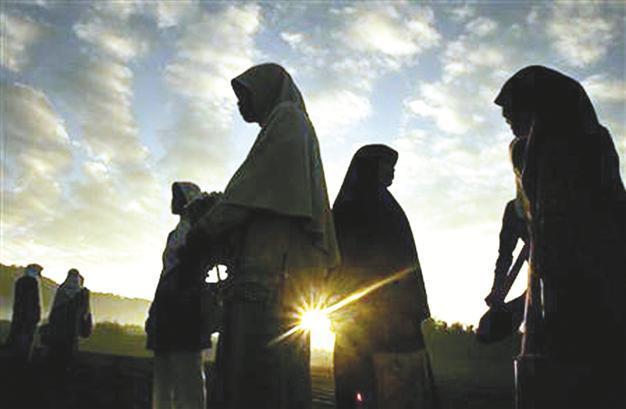Fasting in Ramadan not linked to preterm births
NEW YORK - Reuters

Pregnant women who fasted during the month of Ramadan were no more likely to give birth prematurely than women who didn’t. REUTERS photo
In a small new study, pregnant women who fasted during the Islamic holy month of Ramadan were no more likely to give birth prematurely than women who didn’t observe the fast.Lebanese researchers found no significant differences in the rate of births before the 37th week of pregnancy among 201 pregnant Beirut women who fasted during the daytime compared with 201 women who didn’t.
During the holy month of Ramadan, the ninth lunar month of the Islamic calendar, Muslims abstain from eating and drinking from dawn to dusk.
While fasting is compulsory in Islam, the researchers write in BJOG: An International Journal of Obstetrics and Gynaecology that pregnancy may be “a relative exemption if reasons for maternal/fetal hardship are suspected.”
Nonetheless, many pregnant women ask whether it’s OK to fast during Ramadan the study’s lead author, Dr. Anwar Nassar, told Reuters Health in an email.
Nassar, a professor of obstetrics and gynecology at the American University of Beirut Medical Center, added that other studies have looked at fasting during pregnancy - such as in cases of famine or in experiments with calorie restriction - but this is the first in the English literature to look at the effects of Ramadan fasting, specifically, on preterm delivery.
For their study, Nassar and his colleagues recruited pregnant women from four medical centers around Beirut in August 2008, matching the characteristics of those who planned on fasting with a comparison group of pregnant women who did not fast.
















